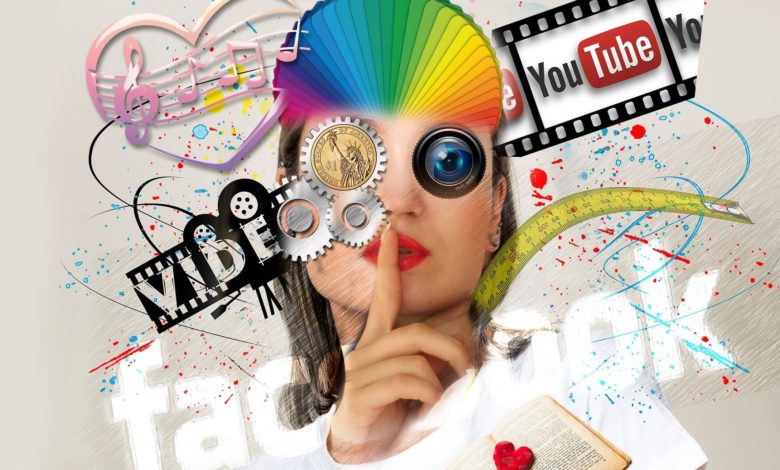What Is Creativity in Entrepreneurship, Why Is It Important?

Entrepreneurs need creativity to be successful in business because creativity is essential for productivity. Fortunately, this ability can be learned and acquired later on. Entrepreneurship is a complex career path. There are many qualities in entrepreneurship that can help individuals such as passion and determination. However, one trait in particular may be more valuable than anything else, and that is creativity. For example, it is the imagination and creativity required to produce a sports equipment that has been used by athletes all over the world for centuries. Or an entrepreneur who produces sports drinks has invented this drink by combining two distinct specialties, such as nephrology and football. As given in the examples, being creative is a very important advantage for the success of an entrepreneur. This article contains information on what creativity is and its importance in entrepreneurship.
What Is the Role of Creativity in Business?
What Is Creativity in Entrepreneurship, Why It Matters Creativity is important because it is like innovation in a way. There is a lot of competition in the business world and only those who can stay one step ahead can succeed. When a business unlocks its creative potential, this perspective gives it the opportunity to take it one step further. It can also remind you of the purpose and goals of the business.
Organizations today operate in a highly competitive, global environment, making creativity very important. Creativity is the situation that fosters big ideas, strains employees’ thinking and opens up new business opportunities. Creativity and innovation are often used interchangeably for this reason, but are two separate concepts.
Innovation is not just one thing but many competencies. Creativity is different because creativity is a mechanism for being innovative. A person may have great ideas, but not be innovative. Creativity in businesses is an important first step that should be prioritized by top leadership. It is seen that there is consensus in a research conducted by IBM on more than 1,500 senior executives. Creativity is cited as the number one factor for future business success. Other factors are management discipline, integrity and even above vision.
One reason for this: Creative leaders are more comfortable with uncertainty. And as industries continue to evolve, business goals and priorities will have to change. Eight out of 10 CEOs surveyed say they expect their industry to become significantly more complex, and in this sense, creativity is a huge advantage. However, only 49 percent are sure that their organizations are equipped to handle transformation.
For example, many retailers such as Apple are trying to take this challenge by creating experiences. Take Starbucks, for example. Customers visit more than just seasonal drinks; and they prefer it especially for the ambience. From the warm, inviting interior color décor to alternative music and furniture or art that are often inspired by a neighborhood, it offers more than just what the brand sells behind the counter.
Target is another example. This chain has recently announced how it plans to redesign more than 1,800 stores. One variation is a brand where shoppers can choose their own adventure by selecting one of two store listings. First, it will take customers to the utensil and food, wine and beer shop of their choice, which includes self-pay strips and the option to take any online order. The second entrance takes customers to the store’s other beauty, fashion, home and electronics area. These brands sell their experiences and these experiences need to be well designed. Here creativity contributes to this and inspires good design.
How Can Entrepreneurs Improve Creativity?
Even if the entrepreneur thinks he’s not creative, he can learn it. One has to study creativity in order to learn how to use the creativity that lives within you. There are many simple ways entrepreneurs can develop their own creativity, such as getting up and walking away from the computer screen to refresh their brains and think of new ideas. An entrepreneur should write down every new idea that comes to mind. It should not omit anything, even if it seems trivial. Divergent thinking generates creative ideas and must pave the way for thinking differently by paying attention to every thought.
Benefits of Creativity
Cade Miles and Ron Ben-Zeev, founder and CEO of World Housing Solution, shared their thoughts on why creativity is such a powerful entrepreneurial force and how it can best be used in the startup environment. These thoughts are as follows:
• Creativity is a bigger indicator of success in life than intelligence: Most educational institutions and businesses still value intelligence for creativity. However, intelligence is subjective and creative individuals can bring huge benefits to a company when this creativity is used properly. Ben-Zeev, this is similar to the argument about book intelligence versus street intelligence. A person thought to be smart in New York may die in the Amazon jungle if he does not have the knowledge to survive in this environment. He made an explanation in the form.
• Creativity needs structure to thrive: Creative problem solving works best when used with highly focused and disciplined thinking. The trick is to be meticulous but not harsh. Scientists who study creativity say that it is necessary to combine two modes of thinking, convergent and divergent, to make creative breakthroughs. Convergent thinking is highly analytical and focuses on reaching a correct solution in the light of available data, while divergent thinking generates creative ideas by exploring many possible solutions. A beginning must be constructed of different ways of thinking over a large period of time to maintain the right creative tension with convergent thinking styles.
• Creativity can be learned: Everyone has creative potential and the creative thinking process can be developed and strengthened. Learning new hobbies and skills is a great way to embed new neural networks, but learning a new art form is one of the best ways to train the mind in developing creative problem-solving skills. Art requires the use of different thinking. Additionally, Ben-Zeev argues that one can observe and can be learned from others. One should not limit himself to his area of expertise.
• Creativity best occurs at the intersection of disciplines: Most groundbreaking discoveries occur when two or more disciplines collide. Most people fear collisions, but creative collisions should be encouraged because they allow you to view a problem from a new perspective. Creative problem solvers can often connect two different areas of expertise and translate potential solutions from one area to an unrelated one.
• Creativity is a gift: If the person is an entrepreneur or has a vision to become an entrepreneur, chances are one of the few who has innate creativity. Only having these branching and original business starting ideas can boast creativity. All the reasons entrepreneurs start a company is because they envisioned one in the first place. Without creativity, there is no idea or vision. Ben-Zeev often thinks it is guided by the vision of the founders who believe they can solve a problem smarter, better, more efficiently than anyone currently on the market. The ability to visualize and develop and implement the solution is what fuels those who start and run companies. This is the driving force behind their creativity.
While a creative thinking process is important, it is not the only feature an entrepreneur needs, they also need some form of formal education. The most successful people are experts in their fields. Persistence and endurance are important because even the best entrepreneur faces failure. The problem is not about failure, the lesson learned about failure and the ability to return is important. Entrepreneurs should be able to see and take advantage of opportunities when presented. Implementing these ideas and visions is the most important factor, and dreams must be pursued.




